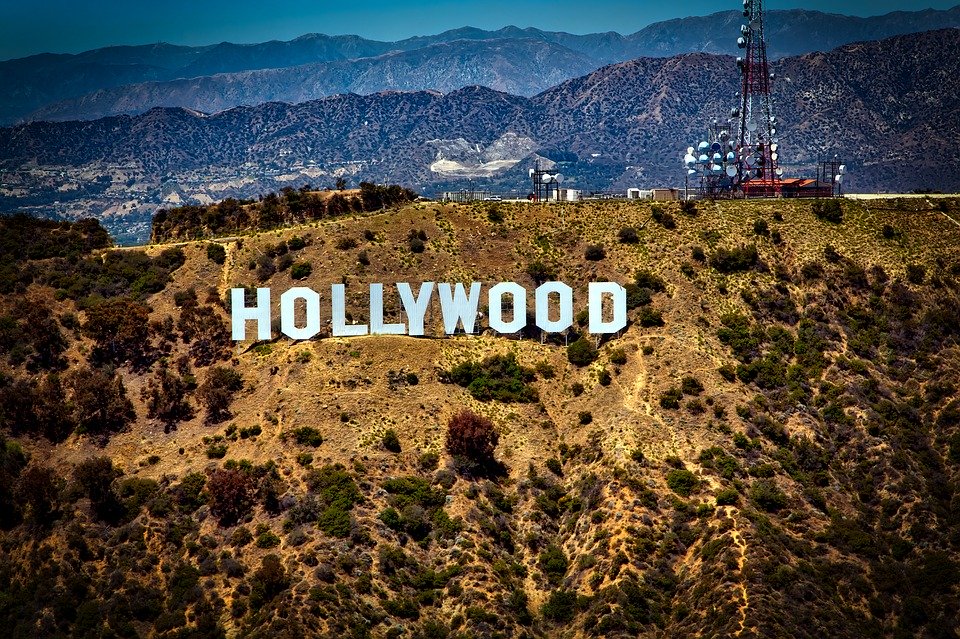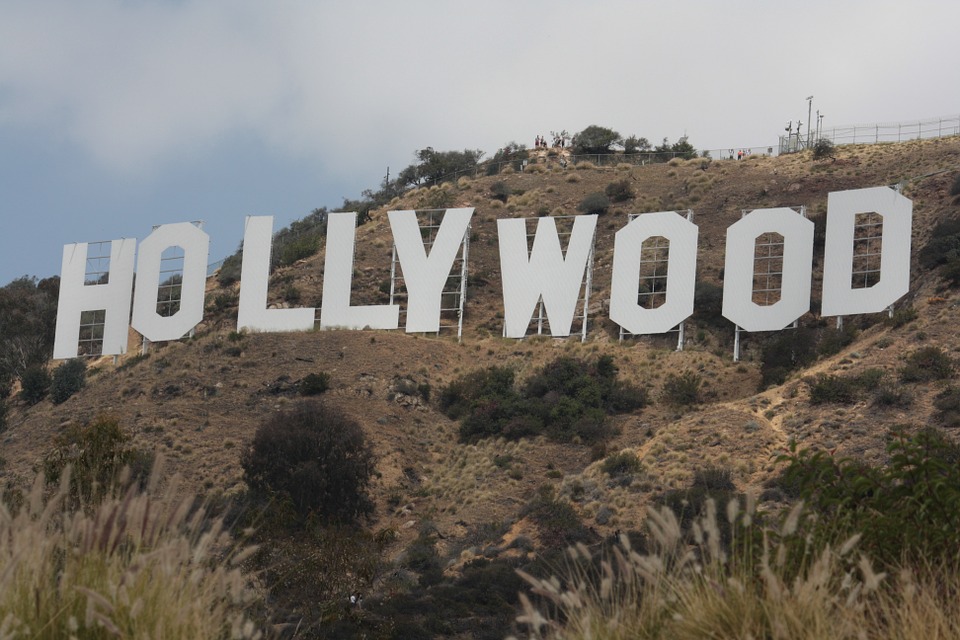
To join in the cinematic fun, we’ve prepared some English film vocabulary and phrases related to the world of movie-making. These will be great to use for an Oscars-themed EFL lesson. The vocabulary can be used to create gap-fill exercises, right or wrong answers, and question and answer sessions. So prepare the EFL stage: Lights, camera…. action!
The Oscars 2020 Nominations
The Oscars is one of the most exciting events of the winter months and this year the ceremony will take place earlier than its usual time of late February. There are some fantastic films and actors up for nomination at the Oscars this year.
We were thrilled last year that British actress Olivia Colman won the award for Best Actress for her role as Queen Anne in The Favourite! We are waiting with bated breath to see who will pick up the awards this time!
Last year, Green Book won the award for Best Picture. The other award winners included Rami Malek who won the award for Best Actor for his role in Bohemian Rhapsody, Regina King who won Best Supporting Actress for her part in If Beale Street Could Talk and Mahershala Ali who won Best Supporting Actor for his part in Green Book. Alfonso Cuaron won the Best Director award for Roma.
The nominations for Best Picture in 2020
This year, the nominations for Best Picture are:
Ford V Ferrari, The Irishman Jojo Rabbit Joker Little Women Marriage Story 1917 Once Upon a Time In Hollywood Parasite
Many big stars will be at the ceremony, including Renee Zellwegger, Scarlett Johansson, Antonio Banderas, Leonardo de Caprio, Joaquin Phoenix, Cynthia Erivo, Saorise Ronan, Kathy Bates, Margot Robbie, Tom Hanks, Al Pacino, Anthony Hopkins, Joe Pesci, Brad Pitt, Martin Scorsese, Quentin Tarantino, Sam Mendes and many more
The EFL class is a great place to discuss the nominations and talk about the students’ favourite actors. The Oscars is also an ideal time to think about the vocabulary of different film genres by discussing the nominations for Best Picture this year.
The nominations give a mix of genres to discuss, from war dramas to thrillers and literary classics.
Of course there are many other awards at The Oscars, which can all give rise to more film vocabulary. There are awards for directing, cinematography, costume design, make up and hairstyling, music, writing, visual effects, best foreign language film, best documentary and other important types of film and areas of film-making.
Movie Vocabulary for EFL Lessons
The Oscar nominations give a spring board to introduce plenty of film vocabulary and movie-related phrases.
These new words are great for EFL students to learn in order to improve their knowledge of collocations and enable them to understand all the movie-talk at this time of year.
This is also useful for when going to the cinema, chatting with friends, watching films on TV and other social situations.
These new film vocabulary and phrase are ideally suited to using in an EFL vocabulary lesson. From actors and extras to cameras and the box office – here are some useful film vocabulary and a few movie phrases related to the Oscars:
A film is also called a movie or in more traditional parlance, a picture (people used to talk about ‘going to the pictures‘ when they went to the cinema)
To rave about an actor’s performance’ means to praise it
A highly popular film is called a blockbuster
An unpopular film is called a flop
The box office used to be where cinema goers went to buy their tickets. Today it is more commonly used to refer to the film ticket sales
The Oscars is the informal name for the Academy Awards, a famous awards ceremony celebrating the year’s achievements in cinema
The films that are shortlisted for an award are the nominations (shortlisted people are the nominees)
The person who wins an Oscar gives an acceptance speech when they collect their award
A film with no sound track is called a silent movie
A movie buff is someone who knows a lot about films
To shoot a film means to make a film
An understudy is an actor who studies a role as a potential replacement for the main actor
The names that appear at the end of the film (giving details of the people involved in the making of the film) are the credits
If a film is shot on location it means it is made in a real place, not in a studio
The objects used in a film scene are called props
The adverts for films shown before the main film at a cinema are called the trailers and sometimes the coming attractions
If a character in a film is involved in a physically violent or dangerous scene, usually a stuntman or stuntwoman is used instead of the actor
If a film is running at slower than normal speed it is using slow motion
The actors who are not main characters in a film, but just appear in the background, usually in non-speaking roles, are called extras.
If a voice of the narrator is heard in the film this is called a voice-over
A film made with computer graphics is called a digitally animated film or an animation
If a film is translated into another language using voice-overs the film is dubbed
A film that has a translation using words along the bottom of the screen is using subtitles
Film vocabulary – film genres:
Thriller, drama, horror, comedy, western, musical, cartoon, animation, documentary, gangster, detective, science fiction, war, psychological, romance, action, biography, history, film noir, politcal, black comedy, epic, adventure, family, fantasy
EFL lessons with film vocabulary
There is so much film vocabulary to present related to the movie world that there is plenty of scope for a number of film-based EFL lessons. This EFL film vocabulary can be used for all kinds of different lessons.
One of the best types of lessons uses gap-fill sheets to test new vocabulary and put it into context, while there are various other kinds of comprehension exercises that can be used to test the new vocabulary and phrases.
Students can practise the vocabulary by placing the new words into sentences of their own, writing about their experiences when working on an imaginary film set, as an actor, director or extra.
Film vocabulary for advanced students
For advanced EFL students, it can be useful to show a short film or a couple of scenes from a film and then ask students to answer comprehension questions about it afterwards. This is a great exercise for EFL listening skills.
Have fun with film vocabulary in the EFL classroom – and enjoy all the discussion in the build up to The Oscars 2020!
Advanced EFL Discussion on Equal Representation and #MeToo
Another interesting topic for discussion in an EFL class with advanced students would be the current conversation around equality in the film industry and media in general.
In the climate of #MeToo and #TimesUp, the Oscars last year and the previous year were both charged with positive vibes surrounding the issue of equality and respect.
Frances McDormand raised a powerful and practical suggestion to help Hollywood move into the modern age and ensure it isn’t only straight white men who get to see themselves represented onscreen.
The suggestion was an ‘inclusion rider’. In this context, it would mean an element in a contract that insists that a film cast is inclusive and truly represents the world we live in. It will be interesting to see what important political issues are raised at this year’s Oscars ceremony.
Share your thoughts on movie vocabulary and film-themed EFL lessons
Can you think of any more useful English movie-related phrases?
Will you watch the Oscars?
Do you think a different film should have been included in the nominations? If so, which film and why?
What types of film do you think should be nominated for an award? Are some topics and themes more worthy or important than others?
Do you think an ‘inclusion rider’ is a good idea to make Hollywood films more representative?
How would you use the Oscars or movie themes in your EFL lesson?
Attributions
1. Olivia Colman at Moet BIFA 2014, image by Ibsan73 [CC BY 2.0], via Wikimedia Commons originally from Flickr

